Day 2
Day 2 centred around cultivating meaningful connections and fostering collaborative opportunities. The program featured a dynamic range of activities, such as engaging workshops, inspiring presentations, sessions showcasing successful regional projects, and a networking reception.
9:30–10:00
Registration and coffee
10:15–12:15
Workshop: Resisting racist policing technologies
The workshop on policing technologies provided an overview of the state of policing and surveillance technologies in Europe, and specifically looked at how racialised communities are targeted by applications. We looked at the harm caused and examples of concrete cases, sharing knowledge and experiences on how to resist these technologies.
Sanne Stevens (Justice, Equity and Technology Table, London School of Economics)
Esra Ozkan (Justice, Equity and Technology Table, London School of Economics)
Workshop: Start your own technology co-operative!
The workshop delved into the nuts & bolts of setting up a technology co-operative based on Luke’s experiences of working at Autonomic.
The workshop delved iinto the nuts & bolts of setting up a technology co-operative based on Luke’s experiences of working at xisting technology co-operatives and how they work. We tried to understand some core organising principles and discussed how they might work out in practice.
Luke Murphy (Autonomic Co-op)
Workshop: The Good Robot, Live! Podcasting for Tech Justice
Feminist researcher and podcast host Eleanor Drage asked the experts (us!): what is good technology? Is it even possible? And how can feminism help us work towards it?
In this interactive workshop we explored the many pro-justices approaches to critiquing, reshaping and dynamically remaking AI.
--> We through collectively about the podcast's key question - what is good technology?
--> We debated responses to this question by previous podcast guests. We asked how our life experience and context shape what we consider to be good technology.
--> Podcasting for digital sovereignty: what key themes should we explore? Which guests? We planned an episode.
--> Participants had the chance to feature on an episode of The Good Robot that was recorded live from the workshop, one that embraced digital sovereignty in its exploration of what it means for a technology to be ‘good’ and the role that feminisms need to play in this process.
Eleanor Drage (Leverhulme Centre for the Future of Intelligence, University of Cambridge)
12:15–13:15
Lunch
13:15–14:00
Presentation & Conversation: Consent in AI Model Training
The rise of generative AI has significant implications for artists and the creative industries. The unscrupulous training of AI models has raised many questions regarding copyright, fair use and art ownership. To take back power, Spawning.ai seeks to build a consent layer for AI that gives artists more control over how their works are used for model training.
Cullen Miller (Spawning)
Tadej Štrok, moderator (Danes je nov dan)
14:00–14:30
Break
14:30–17:00
DISCO Community Space
Project presentations from our open call followed by facilitated discussions to evoke action and build community around digital sovereignty.
Questioning Big Tech
It's important to challenge big tech together. We explored new perspectives on digital sovereignty, identity and responsible technology. The panel offered much needed solutions to surveillance capitalism, engaging educational experiences and the complexities of content moderation.
Hynek Trojánek (Iuridicum Remedium)
An Unexpected Solution to Surveillance Capitalism? The Right to Analogue!
Mitar Milutinović (Layer8)
New Human Right: The Right to Lie
Alia ElKattan (New York University)
Building Interactive Experiences for Public Education on Responsible Technology
Maria Mingo (Mnemonic)
The Dark Side of Content Moderation
Anja Šerc, moderator (BB Consulting)
Policy & politics of tech
From the regulation of tech at the EU level to local civic engagement initiatives to the importance of collaboration in achieving digital sovereignty, this panel highlighted the complexities of governing tech. The debate was rooted at the intersections of politics, policy and technology.
Kris Shrishak (Irish Council for Civil Liberties)
Holding Companies Accountable Under AI Act
Mila Josifovska Danilovska (Metamorphosis Foundation)
Increasing Civic Engagement in the Digital Agenda
Jan Ainali (Foundation for Public Code)
Sovereignty Through Collaboration
Ana Kyra Bekš, moderator (Servis 8)
Surveillance unveiled
This panel explored projects on public surveillance, transparency and the challenges of access to surveillance data. As surveillance can either undermine or strengthen digital sovereignty, depending on who is the surveillant and who is the surveilled, we need to carefully consider the intricacies of pursuing transparency and accountability.
Domen Savič (Citizen D)
Where Have all the Cameras Gone? The Case of Privatised Municipal Surveillance
Danilo Ćurčić (A 11 – Initiative for Economic and Social Rights)
(Anti) Social Cards: How to Use Digitalisation to Exclude 35 000 People from Social Benefits
Liljana Pecova Ilieska (IMPETUS)
Money Behind Surveillance
Amedea Derenda Mujezinović, moderator (ScreenSaverz School)
17:00–17:15
Wrap up
19:00–
Networking Reception
We met up in the Computer History Museum for food, drinks and informal socialising with speakers and invited donors.
